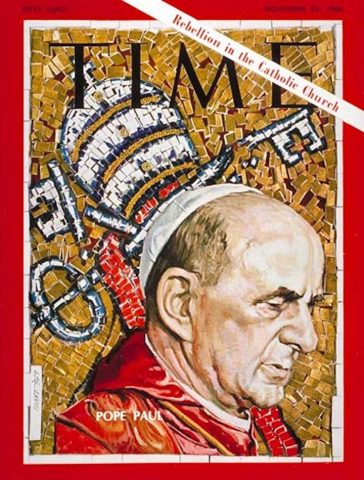Rev. Peter M.J. Stravinskas, The Catholic Thing, July 25, 2023
Father Peter Stravinskas holds doctorates in school administration and theology. He is the founding editor of The Catholic Response and publisher of Newman House Press. Most recently, he launched a graduate program in Catholic school administration through Pontifex University.
 To hear some people talk, one would get the impression that the Church’s prohibition against artificial contraception, as reaffirmed in Paul VI’s encyclical Humanae Vitae (1968) came out of the blue. In fact, there’s a strong and consistent ban on all such practices from the earliest days of the Church, right into the twentieth century, with statements to the same effect by Pope Paul VI’s three immediate predecessors, as well as Vatican II’s Gaudium et Spes. And all the Protestant Reformers held to this teaching, as did all their spiritual descendants, until the beginning of the twentieth century.
To hear some people talk, one would get the impression that the Church’s prohibition against artificial contraception, as reaffirmed in Paul VI’s encyclical Humanae Vitae (1968) came out of the blue. In fact, there’s a strong and consistent ban on all such practices from the earliest days of the Church, right into the twentieth century, with statements to the same effect by Pope Paul VI’s three immediate predecessors, as well as Vatican II’s Gaudium et Spes. And all the Protestant Reformers held to this teaching, as did all their spiritual descendants, until the beginning of the twentieth century.
Pope John Paul II restated that case for the teaching of Humanae Vitae with patience and regularity. Two statements of his, however, are particularly noteworthy. In 1983, he declared: “Contraception is to be judged so profoundly unlawful as never to be, for any reason, justified. To think or to say the contrary is equal to maintaining that in human life, situations may arise in which it is lawful not to recognize God as God.” (L’Osservatore Romano, October 10, 1983) …







